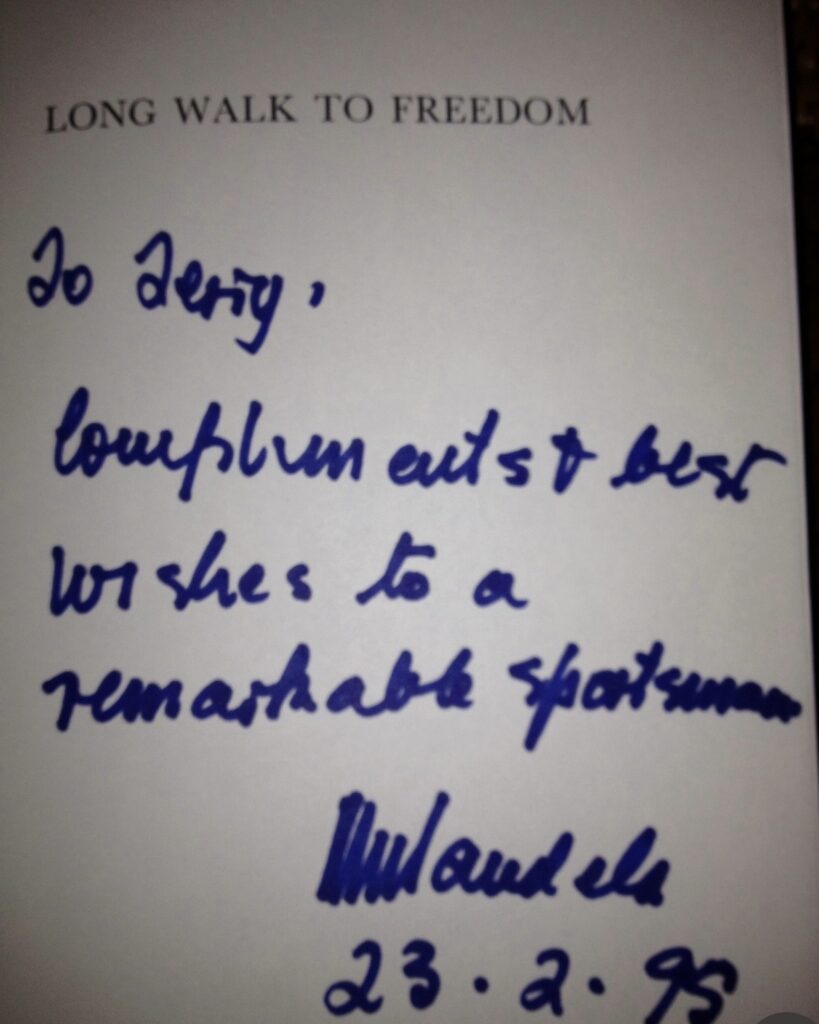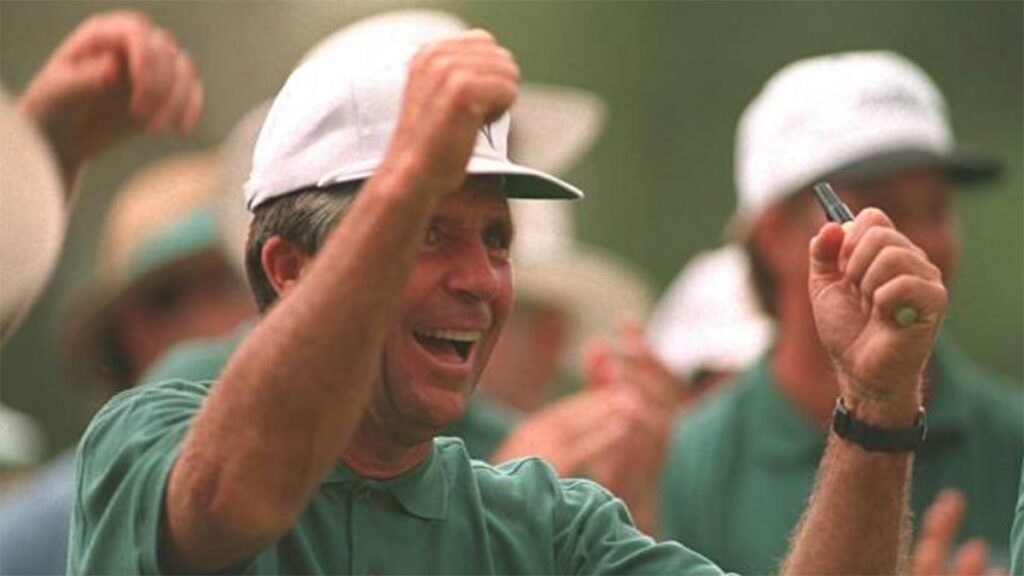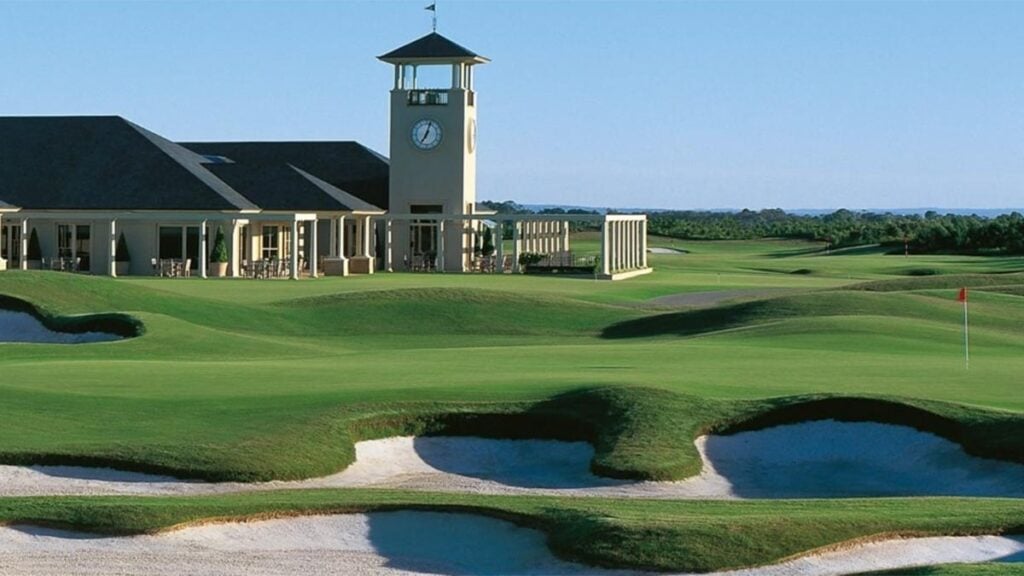[PHOTOS: Getty Images]
The entire golf world will be captivated by the Ryder Cup this weekend, despite only a small-ish proportion of the world’s 195 nations being represented by those walking the fairways at Bethpage Black.
Which makes it a good time for non-Americans and non-Europeans to pause and remember the Ryder Cup-like events that have shamelessly copied the concept. One such tournament took place 30 years ago and saw an Australasian side take on a Southern African squad in a format resembling what we’ll see this weekend.
RELATED: The Ryder Cup Seve won by losing
Only hard-core golfers will remember the one-off Alfred Dunhill Challenge, which was held in South Africa in February 1995. The home side won 14-11 after leading 6.5 to 1.5 after the first day and 9.5 to 6.5 after the second.
Three decades on, what strikes most is the calibre of players who competed at Houghton Golf Club that week. The first staging of the Presidents Cup had happened the previous September, but even under tighter geographic confines than that event, the team lists in Johannesburg still read like a who’s who of the best male golfers of the day:
Southern Africa: Fulton Allem, Hendrik Buhrmann, Ernie Els, David Frost, Retief Goosen, Tony Johnstone, Mark McNulty, Nick Price and Wayne Westner, with Gary Player as the non-playing captain.
Australasia: Robert Allenby, Michael Campbell, Mike Clayton, Wayne Grady, Frank Nobilo, Greg Norman, Lucas Parsons, Vijay Singh and Greg Turner, with Terry Gale as the non-playing captain.
It was the top two players of the day (Price and Norman), a mix of luminaries (Els and Singh), more future major winners (Goosen and Campbell) and a raft of extremely handy golfers with decorated global careers. While the squads were nine per side rather than the 12 we see at the Ryder and Presidents Cups, in many ways they reflected superior line-ups compared to those the USA and Europe fielded at Oak Hill Country Club seven months later.

Nick Price, Nelson Mandela and Greg Norman at the pre-event function for the Alfred Dunhill Challenge in 1995.
The event also had the full endorsement of Nelson Mandela, who at the time was only five years released from his 27-year imprisonment. It was an endorsement that included attending a pre-event function.
Clayton recalls some unrest among the players when Mandela was more than an hour late. It was getting late, and agitation levels were rising.
“Turner says to them and says, ‘The guy spent nearly 30 years in prison – we can wait for him,’” Clayton remembers.
He also recalls an absence of ‘hangers-on’ so prevalent in modern professional team events. The functions involved Mandela, businessman and long-time financier of South Africa golf Johann Rupert, the two captains, the 18 players and no one else. There was not a single WAG in sight.
Of Mandela, Clayton remembers the legendary South African delivering a beautiful speech, touching on his homeland and his extraordinary life.
“It was unbelievably impressive,” Clayton recalls. “Charisma is an overused word, but he had it.”
Later, the great man met Norman and said, “Ah, yes, I’ve heard of you!”
And of the mighty Els, the reigning US Open champion at the time, Mandela said in jest, “Ah, Ernie – you’ve been avoiding me!”
Yet perhaps the most memorable tale from the night surrounds the Australasian captain. Terry Gale’s son Brad had asked a favour via his South African wife to have Mandela’s book, Long Walk To Freedom, signed when the opportunity arose. There was a strict no-autograph rule in play with Mandela, but Brad Gale figured his dad might be able to break it.
Terry dutifully did so, but whether it was a language barrier or some other breakdown in communication, Mandela signed the book for Terry, rather than for Brad’s wife:

Terry was then forced to scramble to find another copy of the book for his son and daughter-in-law, although it allowed him to keep a rather significant memento from the week for himself.
On the course, the local side had the Australasians’ measure, although without winning in a landslide as so often seems to happen in team events today.
Yet once was the end for the Alfred Dunhill Challenge. The supposed second staging was to take place in Australia, but a combination of the rise in stature of the Presidents Cup and more than likely conflicting player schedules saw the concept disappear without a whimper.
Player buy-in – especially from the likes of Price, Norman, Els and Singh – was crucial. Without them, Clayton says, you couldn’t get a concept like that off the ground.

Gary Player’s Southern African side captured the one-off event.
However, one wonders whether such an event could take off again today. The Presidents Cup was in its infancy in 1995 and while it hasn’t reached the heights of adulation that the Ryder Cup has, it’s a far stronger event than it was 30 years ago. But perhaps we’re ‘over-Cupped’ now, and the window of opportunity to cement the Alfred Dunhill Challenge as a regular fixture truly did close as soon as it opened.
Other events preceded it. The Four Tours World Championship ran under several names between 1985 and 1991 and saw six-man sides from each of the PGA Tour, European Tour, Japan Tour and Australasian Tour, the last staging taking place at Royal Adelaide Golf Club (each tour won at least once, with Australasia triumphing in Japan in 1990).
The Dunhill Cup at St Andrews each October was another fine team event where three-man sides representing 16 nations played medal matchplay (which ensured every match reached the Old Course’s famed closing holes). It ran from 1985 to 2000 (Australia won the first two editions) before morphing into the regular, individual strokeplay event still held at the Home of Golf with the same date.
Instead, it’s the amateur game where team events have most scope to grow. The annual Australian Interstate Teams Matches between our six states is one of the more under-appreciated events in domestic golf.
“The Interstate Teams Matches was the biggest thing as an amateur,” Clayton says. “It was a great achievement to be picked for your state.”
Still, professional golf is where the world’s eyeballs are directed – as we will be reminded this weekend. Why there can’t be more team events between pros remains a mystery.



